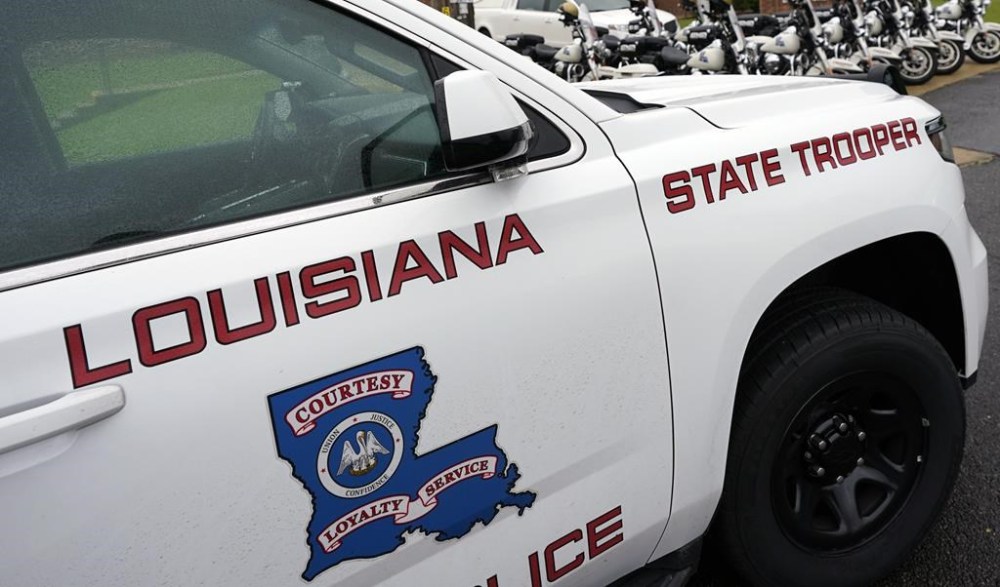Court hears arguments in challenge to Louisiana law meant to give police 25-foot ‘buffer zone’
Advertisement
Read this article for free:
or
Already have an account? Log in here »
To continue reading, please subscribe:
Monthly Digital Subscription
$0 for the first 4 weeks*
- Enjoy unlimited reading on winnipegfreepress.com
- Read the E-Edition, our digital replica newspaper
- Access News Break, our award-winning app
- Play interactive puzzles
*No charge for 4 weeks then price increases to the regular rate of $19.95 plus GST every four weeks. Offer available to new and qualified returning subscribers only. Cancel any time.
Monthly Digital Subscription
$4.99/week*
- Enjoy unlimited reading on winnipegfreepress.com
- Read the E-Edition, our digital replica newspaper
- Access News Break, our award-winning app
- Play interactive puzzles
*Billed as $19.95 plus GST every four weeks. Cancel any time.
To continue reading, please subscribe:
Add Free Press access to your Brandon Sun subscription for only an additional
$1 for the first 4 weeks*
*Your next subscription payment will increase by $1.00 and you will be charged $16.99 plus GST for four weeks. After four weeks, your payment will increase to $23.99 plus GST every four weeks.
Read unlimited articles for free today:
or
Already have an account? Log in here »
Hey there, time traveller!
This article was published 11/12/2024 (392 days ago), so information in it may no longer be current.
BATON ROUGE, La. (AP) — A federal judge heard arguments Wednesday in a lawsuit filed by media outlets challenging a new Louisiana law that makes it a crime to approach within 25 feet (nearly 8 meters) of a working police officer after being ordered to step back.
Attorneys for the six news organization seeking a preliminary junction to stop the state from enforcing the measure, which took effect Aug. 1, argue that the law is unconstitutional — saying it violates the First and Fourteenth Amendments of the U.S. Constitution. Opponents of the law say they fear the enforceable “buffer zone” could hinder reporters’ rights to film and observe officers, and therefore infringe on their ability to gather news.
Attorneys for the state are asking U.S. District Judge John deGravelles in Baton Rouge to dismiss the case. In court, they argued that the suit is “preemptive” and that the plaintiffs are presenting “hypothetical” situations, noting that no arrests associated with the new law have been made.

Under the law, anyone who is convicted of “knowingly or intentionally” approaching an officer who is engaged in “official duties,” and after being ordered to “stop approaching or retreat,” faces up to 60 days in jail, a maximum $500 fine, or both.
Although the legislation’s language doesn’t specifically mention filming, critics say that by default, it limits how close a person can be to observe police. Bystander cellphone videos have revealed many notable instances of police crimes and misconduct, such as with the 2020 murder of George Floyd, and have reframed the national conversation around police transparency.
DeGravelles did not issue a ruling Wednesday. At one point, he did point to the “lack of limitations” in how the law spells out when an officer can enforce the buffer.
“That person (reporter or bystander) doesn’t have to commit a crime. The person doesn’t have to act suspiciously and the officer doesn’t have to feel threatened” in order to demand that a person move back 25 feet, deGravelles said.
He said that based on the law’s language, an officer can invoke the law “willy-nilly” and for no reason other than simply if the officer “doesn’t want to be looked at” or doesn’t want a reporter near them.
Grayson Clary, an attorney for the plaintiffs, said that to do their jobs, reporters and photojournalists must often be near officers, whether they be covering a news conference, crime scene, sporting event or even a Mardi Gras parade.
For months, proponents of the law have said it was passed to help ensure the safety of officers as they do their job. They argue that the measure still allows bystanders to be close enough to film police interactions.
“At 25 feet, that person can’t spit in my face when I’m making an arrest,” Republican state Rep. Bryan Fontenot, author of the legislation, said while presenting his bill in a committee this year. “The chances of him hitting me in the back of the head with a beer bottle at 25 feet — it sure is a lot more difficult than if he’s sitting right here.”
Opponents note that there were already laws in place that criminalize efforts to obstruct police.
Similar laws have been passed in other states in recent years. In Arizona and Indiana, courts blocked such measures from being enforced. In Florida, Republican Gov. Ron DeSantis signed similar legislation that is scheduled to take effect Jan. 1.

